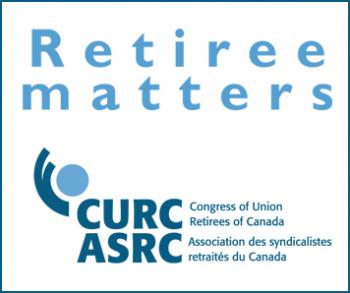Like this column? rabble is reader-supported journalism. Chip in to keep stories like these coming.
Everyone from a young age onwards understands that they will die one day. If one is young, that day is in the distant future, but if you are older, there is usually a daily reminder that it is not that far away. Thanks to modern medicine, the final day has been postponed for many. Indeed, life expectancy for both sexes has risen every decade.
In the 1920s, men at birth had a life expectancy of 59 years and women of 61 years. By 2007, it was 79 for men and 83 for women. If you were a 65-year-old man in 2007, you could expect on average to live another 18.5 years (or to over 83 years ), and if female, another 21.6 years (or to over 86 years). These positive results also pose challenges, especially to health care.
The Canadian Medical Association has called for a senior’s strategy for health care. Seniors’ organizations have supported this need to make better provisions for seniors to live in their home rather than being warehoused in large facilities where they are liable to be drugged in order to ensure a compliant resident. Good home care and palliative care are in short supply.
The April 30 edition of The Economist reported on the trend showing an increase in suicides across all ages in most OECD countries. From 1999 to 2014, the suicide rate in the U.S. had risen by 24 per cent. Both genders and all age groups saw an increase. Some of this startling rise since 2007 is due to the economic crisis. Ill health is correlated with inequality. Thus, it is poor people not rich ones that have seen their life expectancy decline in the U.S. But age is a factor. The article concludes that “the group at the highest risk of committing suicide is not reckless young men but males aged 75 or older.”
It is in the context of these demographic changes that the Supreme Court of Canada revised its view on doctor-assisted dying. In the 1993 Sue Rodriquez case, they ruled in a 5 – 4 decision against giving her the right to die with the assistance of a physician. In the 2015 case brought on behalf of Lee Carter and Gloria Taylor, in an unanimous decision, the Supreme Court did not strike down the Criminal Code’s prohibitions on assisted suicide, but said they no longer apply:
“[t]o the extent that they prohibit physician-assisted death for a competent adult person who (1) clearly consents to the termination of life and (2) has a grievous and irremediable medical condition (including an illness, disease or disability) that causes enduring suffering that is intolerable to the individual in the circumstances of his or her condition.”
The Court gave the government a year to change the law. The Conservative government ducked the issue. The new Liberal government has come up with a law that does not respect the Supreme Court’s decision and will likely end up back in court if it is not amended.
The daughter of Kay Carter was “deeply disappointed” with the legislation as her mother would not have been able to access physician-assisted death in Canada. Kay Carter had to go to Switzerland to get such assistance.
There are some very difficult decisions to make around allowing such a procedure. But as Sue Rodriquez said in her case, “Whose life is this?”
Jean Chretien once quipped that “everyone wanted to die and go to heaven but just not yet.” But for some people, “yet” has arrived as they know the road ahead. There should be better access to palliative care for people in their final days, but some will want to end the inevitable progress of a disease or condition. We should respect life and the decision of people who decide that their time in life on earth has come to an end.
Retiree Matters is a monthly column written by members of the Congress of Union Retirees of Canada (CURC) that explores issues relevant to retirees, senior citizens, their families and their communities. CURC acts as an advocacy organization to ensure that the concerns of union retirees and senior citizens are heard throughout Canada.
Like this column? rabble is reader-supported journalism. Chip in to keep stories like these coming.



